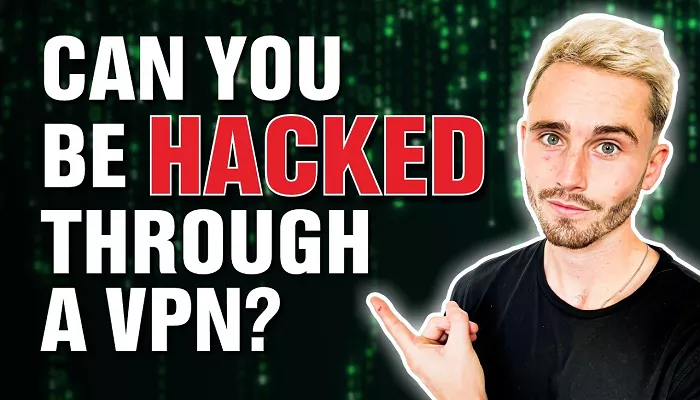A Virtual Private Network (VPN) is a tool that enhances online privacy and security by encrypting your internet traffic and masking your IP address. This encryption creates a secure tunnel between your device and the internet, making it difficult for third parties to intercept or monitor your data. However, while VPNs significantly bolster your online defenses, they are not impervious to hacking. Understanding the potential vulnerabilities of VPNs is crucial to ensuring comprehensive online security.
Understanding VPNs and Their Security Features
VPNs function by routing your internet traffic through encrypted tunnels to remote servers, effectively disguising your online activities and location. This process prevents unauthorized entities, such as hackers or internet service providers (ISPs), from tracking your browsing habits or accessing sensitive information. The primary security features of a VPN include:
- Encryption Protocols: These are sets of rules that determine how data is encrypted and transmitted. Common protocols include OpenVPN, WireGuard, and IKEv2, each offering varying levels of security and speed.
- Encryption Ciphers: Algorithms like AES-256 or ChaCha20 that encrypt data, rendering it unreadable to unauthorized parties. The strength of the cipher is crucial in determining the security of the VPN.
- No-Logs Policies: Commitments by VPN providers to not store users’ browsing data or personal information, ensuring that even if data is intercepted, there is no record to exploit.
Potential Vulnerabilities in VPNs
Despite their robust security measures, VPNs can have vulnerabilities that hackers might exploit:
1. Weak or Outdated Encryption Protocols
Not all encryption protocols offer the same level of security. For instance, the PPTP protocol is known to have vulnerabilities that can be exploited by hackers, making it less secure compared to modern protocols like OpenVPN or WireGuard.
2. Compromised VPN Servers
VPN servers themselves can be targets for hackers. If a server is misconfigured or has weak security measures, attackers can gain access, potentially exposing users’ data. For example, in 2018, a server used by NordVPN was breached due to vulnerabilities in a third-party data center, highlighting the importance of secure server infrastructure.
3. VPN Leaks (IP, DNS, WebRTC)
Even with encryption, certain data leaks can occur, revealing your real IP address or DNS requests:
- IP Leaks: Occur when your real IP address is exposed despite being connected to a VPN.
- DNS Leaks: Happen when DNS requests bypass the VPN tunnel, allowing your ISP to see the websites you visit.
- WebRTC Leaks: A vulnerability in web browsers that can expose your IP address, even when using a VPN.
These leaks can undermine the privacy a VPN is supposed to provide.
4. Theft of Encryption Keys
If hackers obtain encryption keys, they can decrypt and access the data transmitted through the VPN. While this is challenging due to the complexity of modern encryption algorithms, it remains a potential risk, especially if the VPN provider does not implement Perfect Forward Secrecy (PFS), which ensures unique session keys for each session.
5. Exploitation of VPN Software Vulnerabilities
Like any software, VPN applications can have vulnerabilities. Hackers can exploit these weaknesses to gain unauthorized access to your system or intercept your data. Regular updates and patches are essential to mitigate this risk.
Real-World Examples of VPN Breaches
Understanding real-world incidents can shed light on how VPNs can be compromised:
- NordVPN Breach (2018): A third-party data center’s vulnerability led to unauthorized access to a NordVPN server. While no user activity logs were compromised, the incident highlighted the importance of secure server management.
- Multiple VPNs Breached (2021): Services like SuperVPN, GeckoVPN, and ChatVPN experienced breaches, exposing personal information of over 21 million users, including email addresses and passwords.
How to Enhance Your VPN Security
To minimize the risk of VPN-related security breaches, consider the following measures:
1. Choose a Reputable VPN Provider
Opt for VPN services with strong security protocols, transparent privacy policies, and a track record of safeguarding user data. Providers that undergo regular independent security audits offer additional assurance.
2. Regularly Update VPN Software
Ensure that your VPN application is up-to-date to benefit from the latest security patches and improvements.
3. Enable Kill Switch Features
A kill switch automatically disconnects your device from the internet if the VPN connection drops, preventing unencrypted data from being transmitted.
4. Test for Leaks
Regularly check for IP, DNS, and WebRTC leaks using online tools to ensure your VPN is effectively masking your identity.
5. Use Multi-Factor Authentication (MFA)
Implementing MFA adds an extra layer of security, making it more difficult for unauthorized users to access your VPN account.
Conclusion
While VPNs are powerful tools for enhancing online privacy and security, they are not foolproof. Understanding potential vulnerabilities—such as outdated protocols, server compromises, data leaks, and software flaws—is essential for users seeking comprehensive protection. By choosing reputable VPN providers, keeping software updated, enabling security features like kill switches, and regularly testing for leaks, you can significantly reduce the risk of hackers penetrating your VPN defenses.

